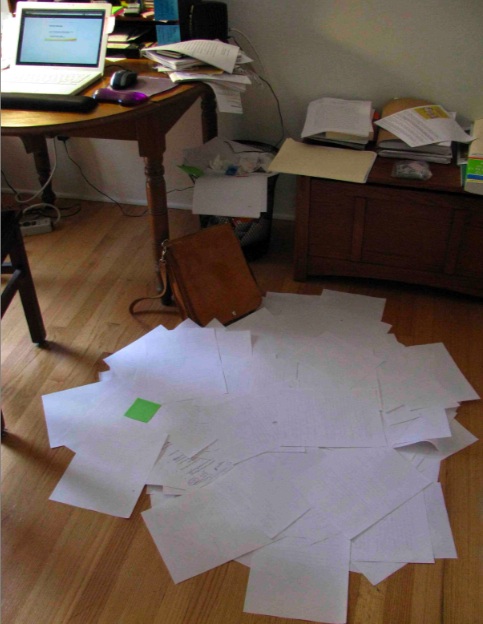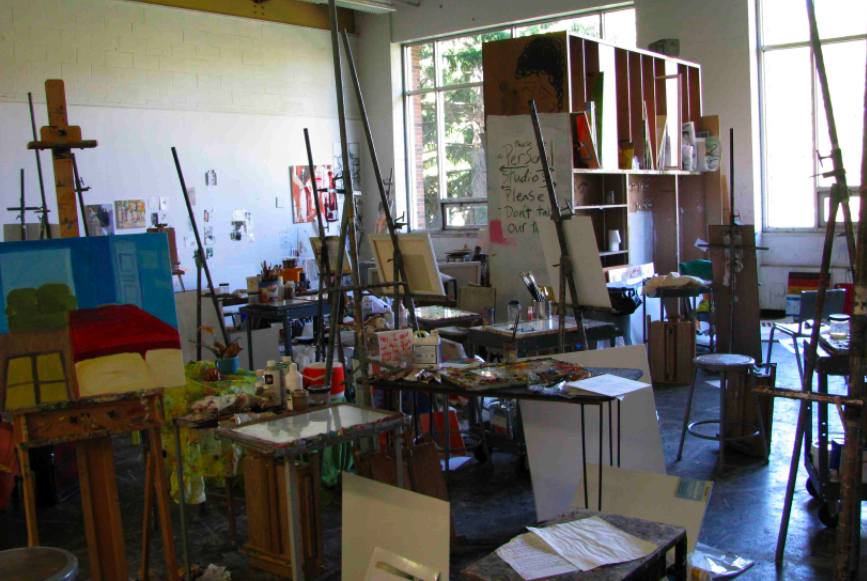1. You can't control inspiration or insight; it just happens.
If you're still clinging to the notion that good ideas pop randomly into a person's head, then you're not reading the books on the New York Times bestseller list. From Malcolm Gladwell to Jonah Lehrer, popular authors have spent the last 10 years interpreting the scientific studies to change the way we understand problem solving and creativity.
In her book The Midnight Disease: The Drive to Write, Writer's Block, and the Creative Brain, which is part memoir and part science, neurologist Alice Flaherty argues, "[W]riting regularly, inspiration or no, is not a bad way to eventually get into an inspired mood; the plane has to bump along the runway a while before it finally takes off."
Hard work, along with an openness to ideas, can generate inspiration because the creative process occurs in stages: defining the problem, learning as much about it as possible, reaching an impasse, gaining insight, and testing that insight. Inspiration may feel like magic, but it's part of a progression. Don't sit around waiting for your great idea.
It turns out that being in a good mood cultivates insight, too. Flaherty (and recently Lehrer in his book Imagine: How Creativity Works) suggests, "Joy can even give a sense of being inspired when no real inspiration exists."
2. If you want something done right, do it (by) yourself.
 Individualism is American. We're do-it-yourselfers. We resist working collaboratively for fear that we will lose track of what's mine or not get appropriate credit.
Individualism is American. We're do-it-yourselfers. We resist working collaboratively for fear that we will lose track of what's mine or not get appropriate credit.
When it comes to ideas that change the course of things to come, though, "a group is not just a collection of individual talents." In Imagine, Lehrer goes on to assert, "Instead, it is a chance for those talents to exceed themselves, to produce something greater than anyone [or any one individual] thought possible." After all, "If we're not here to make one another better, then why are we here?" In other words, stop being selfish -- or rather, collaboration is the new selfish.
Even those of us working in isolation to a great extent benefit from being part of something larger. In The Creating Brain, psychiatrist and Renaissance literature scholar Nancy Andreasen recognizes "cradles of creativity" that "produce a cultural environment that nurtures creativity." One of the characteristics of such an environment is "a critical mass of creative people." It turns out that "creative people are likely to be more productive and more original if surrounded by other creative people."
You shouldn't hang out only with folks just like you, but brushing up against others who have big goals is good for everybody involved. And according to Andreasen, some healthy competition with other ambitious people helps too.
3. Mistakes are bad.
We tend to think mistakes get in the way of progress or, worse, mean failure. With small tasks, that's likely. When you leave a Kleenex in the laundry, you're going to waste time and energy. A typo in an application letter can cost you a job.
But when it comes to thinking big and achieving something over time, error is an important part of the process. As Steven Johnson notes in his book Where Good Ideas Come From, "Error often creates a path that leads you out of comfortable assumptions. [...] Being right keeps you in place. Being wrong forces you to explore." As writer Samuel Beckett said, "Fail better." Or as today's engineers say, Fail faster. Author Neil Gaiman came up with the character name (and book and film title) Coraline when he mistyped his friend Caroline's name in a letter. Some mistakes are opportunities in disguise.
Johnson (and Lehrer, too) points to studies by psychologist Charlan Nemeth that indicate dissent, like error, "can dramatically expand creative potential." If you never risk making a mistake or having anyone contradict you, you're probably stuck.
4. The more you have to do, the more plans you need.
 To achieve something big or long-term, you need a step-by-step plan to which you hold yourself accountable. That works.
To achieve something big or long-term, you need a step-by-step plan to which you hold yourself accountable. That works.
But that works for one big goal, not for six. Most of us are multi-taskers, juggling multiple projects and ideas at once. A recent article by Art Markman in Psychology Today reveals:
"[W]hen there was only one goal, people were more committed to that goal and thought it would be less difficult to achieve the goal when they formed an implementation intention than when they did not. When there were six goals, though, the implementation intention made people feel that satisfying the goals would be difficult to achieve, and so the plans actually decreased people's commitment to the goals."
In other words, a step-by-step game plan works great because it keeps you on track. But when you have multiple plans for different tasks (or too many disparate tasks in a plan), each one tells you when you're falling behind.
The answer Markman (whose blogs also appear on The Huffington Post) suggests is to "try to scale back your expectations." Another way to solve the multitasking problem is to prioritize. That's not to say you should focus on one thing to the exclusion of all else, for you might then miss an insight in your peripheral view. Still, make one or two big things priorities, and stop worrying about dust bunnies.
5. You have to be the best at what you're doing.
In order to succeed, you have to better than everybody else. Wrong.
In reality, to succeed, you must stick with your big goals, outlasting others. Psychologist Angela Duckworth calls this grit and claims that it's one of the qualities necessary to unlock talent. In an article in The Boston Globe, Lehrer suggests that smart people may be less likely to work hard and, therefore, may not take advantage of their talent. And in his book Outliers, Malcolm Gladwell popularizes studies by psychologist K. Anders Ericsson and others that show 10,000 hours of practice is necessary to achieve expertise in something. That's sticking with something for about 20 hours every week for almost 10 years.
Neil Gaiman put this idea another way in his commencement speech at the University of the Arts:
"People will tolerate how unpleasant you are if your work is good and you deliver it on time. People will forgive the lateness of your work if it's good and they like you. And you don't have to be as good as everyone else if you're on time and it's always a pleasure to hear from you."
Even if you're the best, achieving goals depends on other qualities, too.
For more by Anna Leahy, click here.
For more on emotional wellness, click here.